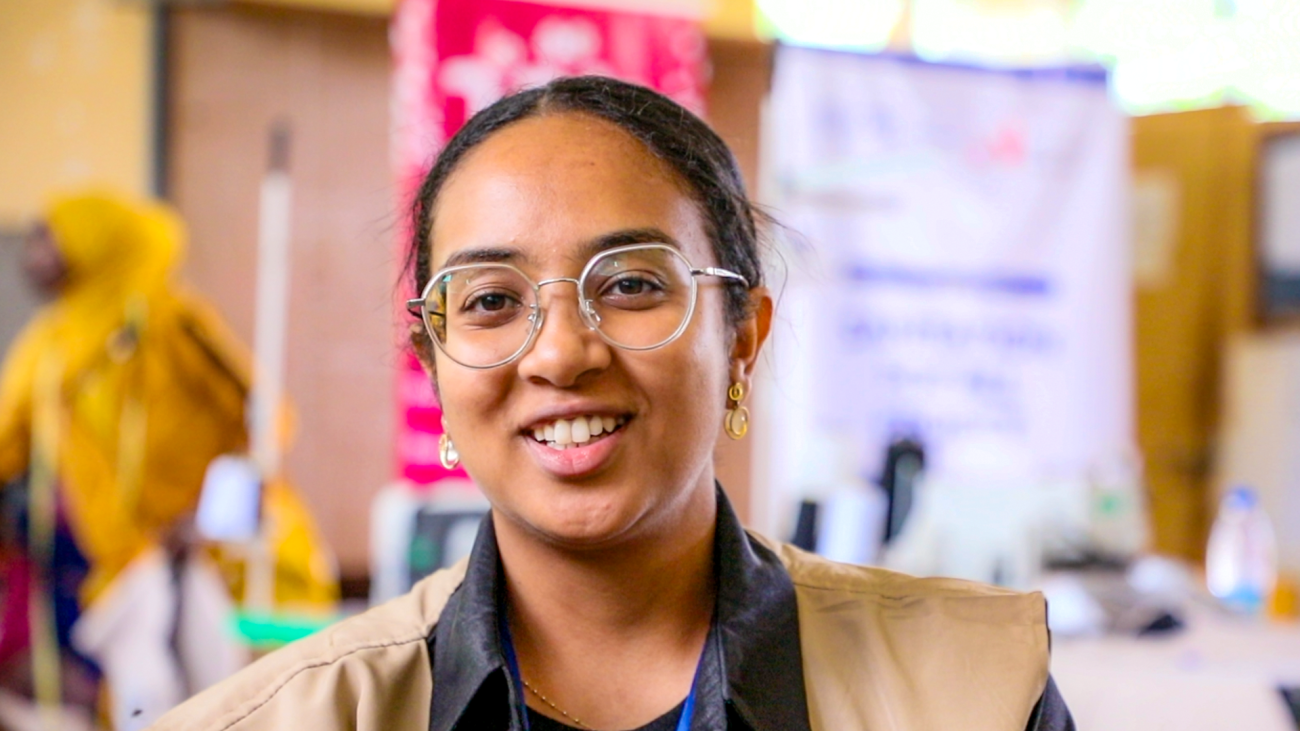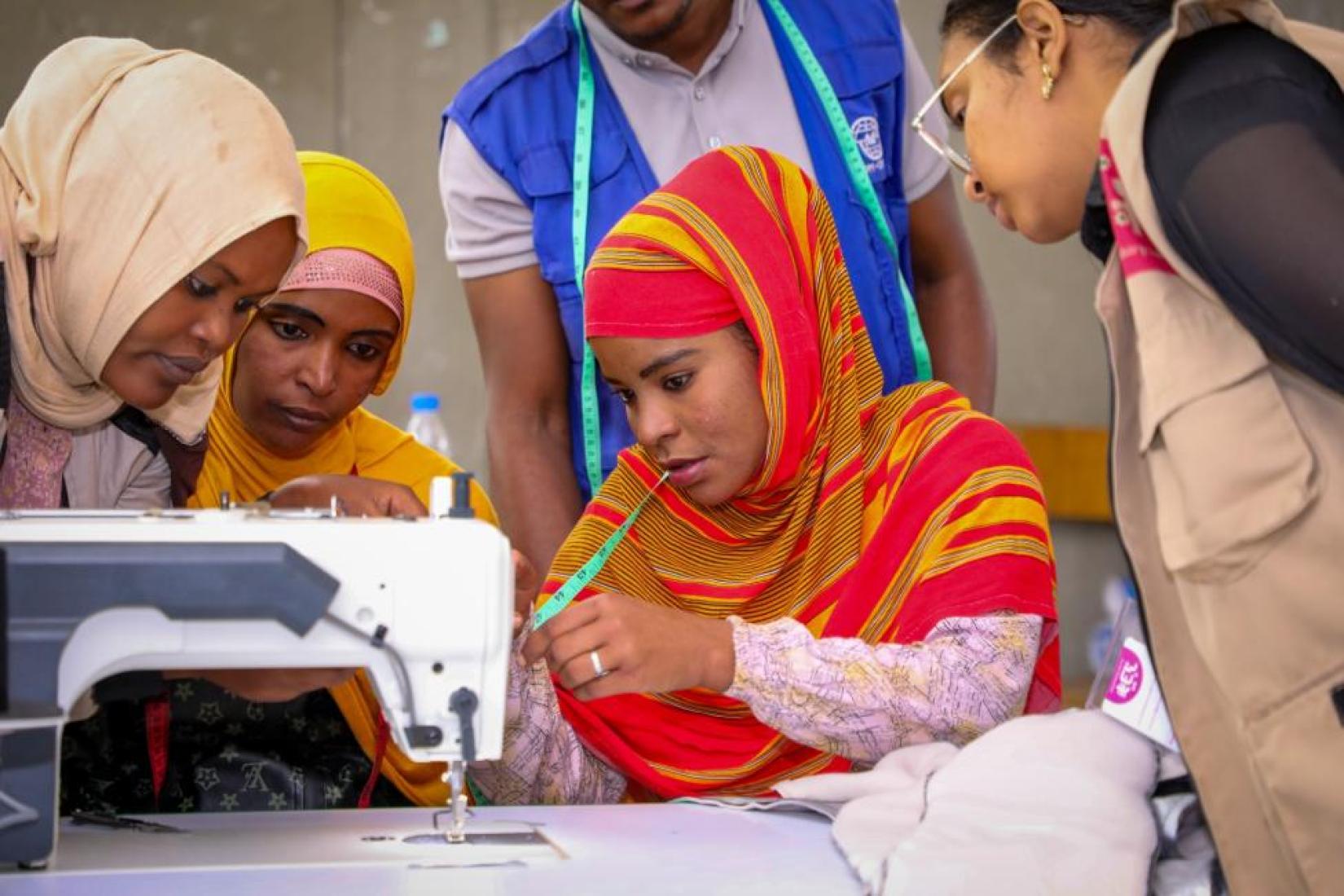Breaking the Flow of Stigma for Displaced Women and Girls

Dr. Tsebaot Meles, a young Ethiopian doctor, turned a distressing personal experience into a mission to transform lives.
During a visit to Sekota, a small town in Ethiopia's Amhara region, Tsebaot faced an unsettling challenge when she tried to purchase sanitary pads.
“I got my period and went to a local shop with my sister,” she recalls. “To our shock, the male shopkeeper refused to help, reprimanding us for daring to request such an item. He insisted they don’t sell such things there.”
Desperate, Tsebaot resorted to cutting up a bathroom towel for use as a sanitary pad. The incident ignited a passion within her to address this critical issue. Driven by the glaring gap in access to feminine hygiene products, she began researching how to start a company that could make a difference. She later founded Ngat Reusable Sanitary Solution, a social enterprise committed to empowering women and girls in underserved areas.
Through her research, Tsebaot discovered that many women and girls in rural Ethiopia lacked access to essential hygiene products. Determined to create an affordable and sustainable solution, she focused on producing reusable sanitary pads for women in remote areas. As she delved deeper, she identified an even broader need for hygiene products, including baby diapers and supplies for individuals with incontinence.

Ngat Reusable Sanitary Solution now offers a range of affordable and reusable products, including sanitary pads, baby diapers, incontinence products, and underwear. Beyond manufacturing, the company provides free products in rural areas, enabling individuals to maintain their health and hygiene with dignity.
Partnerships for sustainable solutions
Recognizing the transformative impact of Tsebaot’s initiative, the International Organization for Migration (IOM), in collaboration with the Norwegian Church Aid (NCA) and other partners, launched the Sanitation for All project. The initiative aims to improve access to reusable hygiene products for vulnerable populations, including those in refugee camps and internally displaced persons (IDP) sites.
Implemented in Jewi Refugee Camp in Gambella and IDP sites in Ethiopia’s East Hararghe zone, the project addresses hygiene needs in humanitarian settings. By fostering local production through a sustainable business model, it ensures ongoing availability of affordable hygiene solutions while supporting the local economy.
The project engages displaced communities through training and empowerment. Local cooperatives, including women’s groups, are taught to produce high-quality sanitary products tailored to the needs of the community. Prior to training, consultations and feedback sessions are conducted to ensure the products meet user needs effectively.
“Awareness of incontinence remains low, and stigma often limits both demand and supply of hygiene products in displacement contexts,” explains Evans Kibet Kipkeny, Water, Sanitation and Hygiene (WASH) Innovation Officer at IOM Ethiopia. “This project creates opportunities for humanitarian agencies, public authorities, and private sector actors to collaborate on innovative solutions that address unmet sanitation needs with dignity.”
A model for empowerment and sustainability
The Sanitation for All project also creates economic opportunities for displaced individuals and their host communities. By involving local cooperatives in production and distribution, the initiative generates jobs and fosters social cohesion in communities deeply affected by displacement. As of late 2023, Ethiopia had over 3 million internally displaced individuals, according to IOM's Displacement Tracking Matrix.
Aligned with IOM’s strategic objectives, this initiative minimizes drivers of displacement, promotes resilience, and fosters self-reliance among affected populations. The collaborative effort involves ThinkPlace Kenya, a global design and innovation consultancy, and receives financial support from Innovation Norway.
This impactful partnership reflects a shared commitment to innovation, dignity, and sustainability in addressing humanitarian challenges.



